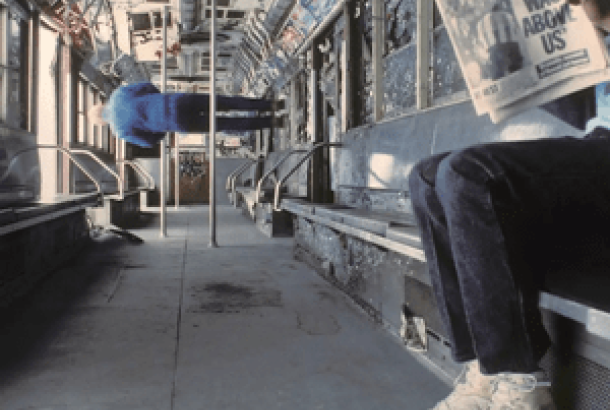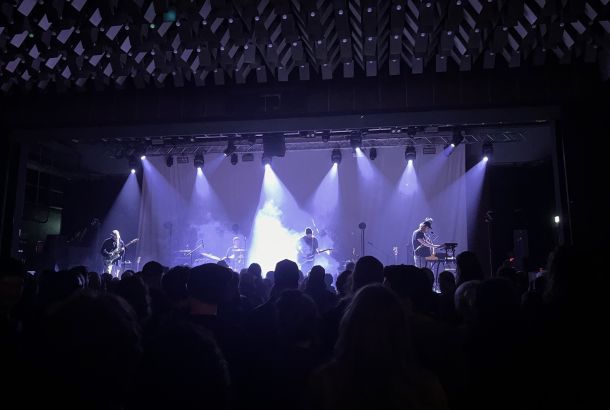The Staves
The astonished silence before the applause: this is what speaking to a band currently enjoying the boost of critical recognition feels like. The Mancunion caught up with Jessica, one of the three Staveley-Taylor sisters who make up The Staves, right before the release of their first album, Dead and Born and Grown. She expressed relieved excitement at the gathering momentum of their success, after years of hard graft: “it’s all just quite surreal, I think. We’re just getting used to people knowing who we are and even wanting to have an opinion on us”. Jessica and her two sisters, Emily and Camilla, have been making music together from their teens; at early gigs in their local Watford pubs, Camilla, who is the youngest, occasionally had to be sneaked in because she was underage. They have since worked their way up from start-out venues to play with the likes of Ben Howard and Michael Kiwanuka. They performed on a trip around America this summer and, most recently, supported Bon Iver on his UK tour, playing to audiences of up to ten thousand people.
Artists like The Staves can face a long road to recognition, in comparison to the pop-up band-brands contrived by major record labels: Jessica noted that the lengthy process often involved “when you approach it from a gigging point of view, as opposed to the more manufactured artists that just kind of appear one day, don’t they, on billboards and stuff, and you’re thinking ‘Oh, where have they come from?’”. When thinking about the place that The Staves want to occupy in today’s music scene, Jessica made a diplomatic distinction between this mode of promotion and their own approach: “on the whole manufactured thing, the celebrity side of things, that’s kind of not what we do – and I think there has been a reaction to that, that people are more interested in hearing the sounds of real instruments and real voices and not hearing too much production and auto tune.”
The Staves’ authentic sound – lucid three-part harmonies, cleansed of over-produced gloss – has been well documented: the simple combination of voice and guitar distinguishes them as perhaps the purest part of a recent backlash against artificiality.
The band had time to talk gender politics, too, with Jessica displaying frustration at the focus of attention often being on The Staves’ all-female lineup: “I think it was Joni Mitchell who said “Female isn’t a genre”, but so many people see it as a genre and won’t compare, I don’t know, Bob Dylan and Joni Mitchell to each other – because one’s a man and one’s a woman, they’re in different categories. Which I suppose I find really weird, it doesn’t make any sense to me. We’re often described as a ‘female band’ but they would never describe Coldplay as a ‘male band’.” More worryingly still, she suggested that this attitude remains a factor their reception when gigging: “you think, actually, if we were a band of guys and we had a drum kit and bass, they’d never speak to us like that. They obviously just think that we’re idiots, with long hair, running around.” This testimony to regressive attitudes within a music industry broadly dominated by men is sobering.
More encouragingly, the rise of digital media does offer the potential for a new equality in how bands like The Staves come to be promoted. The shrinking of funds, though in some ways damaging to artists, has prompted the curtailment of extravagant corporate demands. Jessica commends this change: “If you look ten, twenty years ago, the amount of money record companies had to throw around was just obscene, and a band at our level would just be spending insane amounts of money on, I don’t know, limousines, or something completely pointless”. She does admit that this comes with certain downsides: “I mean, we’ll never make any money from what we do, just because of the way things are – you can’t sell as many records as you used to”. This is an observation that echoes the difficulties facing all emerging young professionals today, having to come to terms with the fact that they will achieve less financial success that the previous generation.
Yet this doesn’t seem to have dented The Staves ambition: “I’m not going to say ‘world domination’, but world touring would be amazing. As long as we’re having fun, it’s cool and we’re doing the right thing. There’s no master plan. Keep your head down, get on with it.” Their way of thinking about the future offers a refreshing freedom and pragmatism – but the applause will be no less uproarious.
The Staves play the Ruby Lounge on November 27







